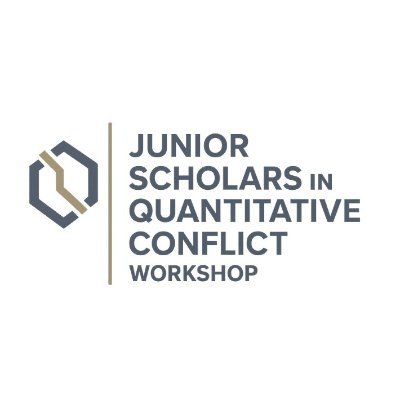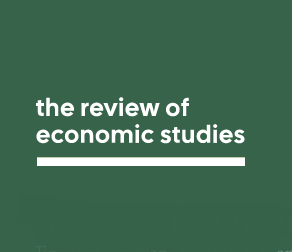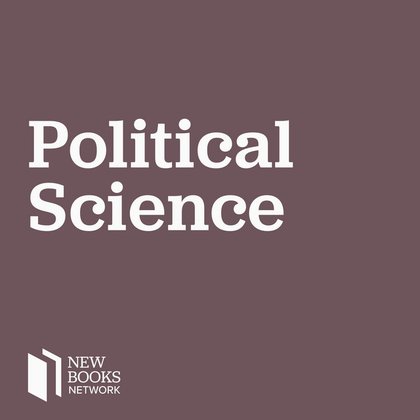
Daniel S Smith
@Dan_S_Smith
Followers
107
Following
2K
Media
10
Statuses
92
PhD candidate @osupolisci | Interests in pre-modern political systems, autocracy, and state formation | Formerly: @START_UMD and @PoliticsUVA
Columbus, OH
Joined January 2023
Immense planning and technical precision was required for this absolutely preposterous (but real) view: I captured my friend @BlackGryph0n transiting the sun during a skydive. This might be the first photo of it's kind in existence. See a video of this moment in the reply 👇
2K
12K
70K
📢 CALL FOR PRESENTATIONS | Junior Scholars in Quantitative Conflict Workshop Spring 2026 PhD students, postdocs & junior faculty: Present your research/practice job talk! 🗓️ Virtual: 1st & 3rd Fridays, 1pm ET 📝 Deadline: Dec 5 Apply:
0
3
2
Please join Virtual HPE Workshop this Thursday, Nov 6 at 12:30 EST! @Jan_Vogler is presenting his paper "Exploring the Origins of Coercive Colonial Institutions" (with Jan Pierskalla and @Dan_S_Smith). Discussed by @jackpaine_prof.
0
2
5
"Serfdom in early modern Russia wasn’t inevitable—it was driven by landholding soldiers on the southern frontier. To defend against nomads, the state tied peasants to land, cementing coercive labor." New paper by @andreamatranga & @Natkhov: https://t.co/Y6nTqlnhsC
#econtwitter
0
10
35
NEW - Interstate Conflict Increases the Appeal of Undemocratic Candidates - https://t.co/SWFICnCd4J "undemocratic candidates are evaluated more positively under conflict compared to peace" - @kristianvsf & Lasse Laustsen #OpenAccess
0
8
21
This footage from inside the eye of Category 5 Hurricane Melissa might be the most jaw-dropping video ever captured of a hurricane’s eye, showcasing the infamous “stadium effect."
1K
23K
155K
New in Broadstreet: Blood and Iron: Political Fragmentation in the Ancient Eastern Mediterranean.
broadstreet.blog
How new technology reshaped the political equilibrium of the early Iron Age through violence.
0
7
9
New podcast on how war made the state in Latin America. Ideal for a relaxing Saturday afternoon
open.spotify.com
New Books in Political Science · Episode
1
14
76
Coming soon: @JHPE_journal 5(2). Articles by @Dan_S_smith and @t_r_gray, @JanneTukiainen & coauthors, Mirya Holman & coauthors, Jonathan Doucette, Jorgen Moller.
0
9
29
"Democracies don't go to war", they say. Tell that to Athens & Syracuse. Super cool analysis of ancient Greek city-states suggests that democracies actually fought more battles! cc @economeager @Patrick_Wyman
9
47
145
#OpenAccess from @apsrjournal - A Precolonial Paradox? Rethinking Political Centralization and Its Legacies - https://t.co/ycymJGHOxl - MARTHA WILFAHRT (@UCBerkeley) #FirstView
0
2
6
🚨 New Research on Historical State Building 🚨 @Dan_S_Smith from OSU has an *extremely fascinating* article on state building in Eurasia out in @apsrjournal! Also, he has many more interesting projects, so make sure to follow him to hear about his future publications, too! 😊
My piece on warfare and succession institutions is out @apsrjournal! I re-examine theories linking warfare to capacity-building institutions in a consequential but understudied geopolitical context, that of Inner Asian Cavalry Warfare. 🧵(1/n) @osupolisci @mershoncenter
1
3
23
Beyond Colonialism: The Long Shadow of War in Latin America’s Development', a new blog by @llschenoni, author of BRINGING WAR BACK IN: VICTORY, DEFEAT, AND THE STATE IN NINETEENTH-CENTURY LATIN AMERICA 📚 https://t.co/2G1X4yslyv
0
3
8
One of my favorite recent papers in historical political science is Gray & Smith (2023). It uses the Roman Empire as a case of a long-running autocracy without stable hereditary succession and with quasi-republican institutions to show that the monarchical succession principle is
10
117
676
This project especially benefitted from the support and feedback of @t_r_gray Thomas Barfield @DBoucoyannis @sarahmbrooks John Gerring Marcus Kurtz Jan Pierskalla @WalterScheidel Matthew Wilson @osupolisci @mershoncenter
0
0
2
The big takeaway: geopolitical competition undermined an important foundation for long-run capacity building where Inner Asian modes of warfare held sway, with implications for institutional development over the long run.
1
0
2
Moreover, dynasties with FS succession were less likely to be conquered by rivals with other succession customs (i.e. non-FS). However, this FS advantage only held in the absence of IACW, as IACW intensity significantly raised the probability of non-FS conquest for FS dynasties.
1
0
0
I find evidence that dynasties relying on IACW were much less likely to feature FS succession customs.
1
0
0
In this geopolitical environment, competitiveness hinged on the martial prowess and diplomatic aptitude of rulers to a greater extent than in non-IACW realms. Thus, dominant succession customs tended to yield bloody competitions among adult candidates and short, uncertain reigns.
1
0
0
This area was characterized by a distinctive type of warfare, Inner Asian Cavalry Warfare (IACW), associated with conquest-oriented mobile elites.
1
0
1














